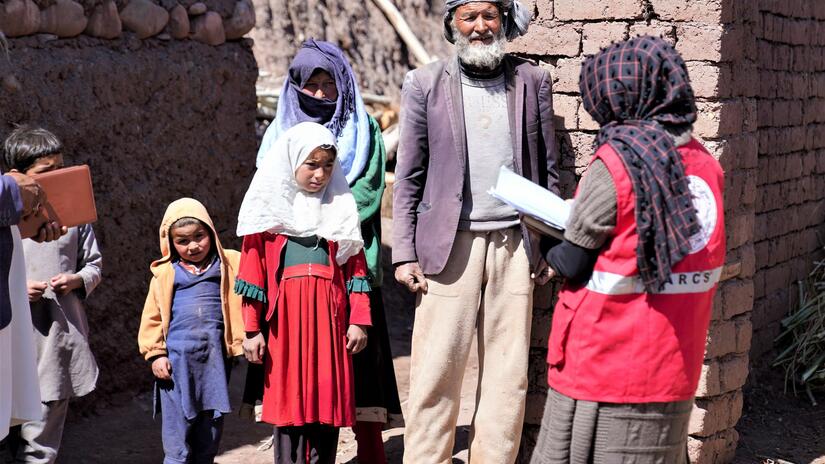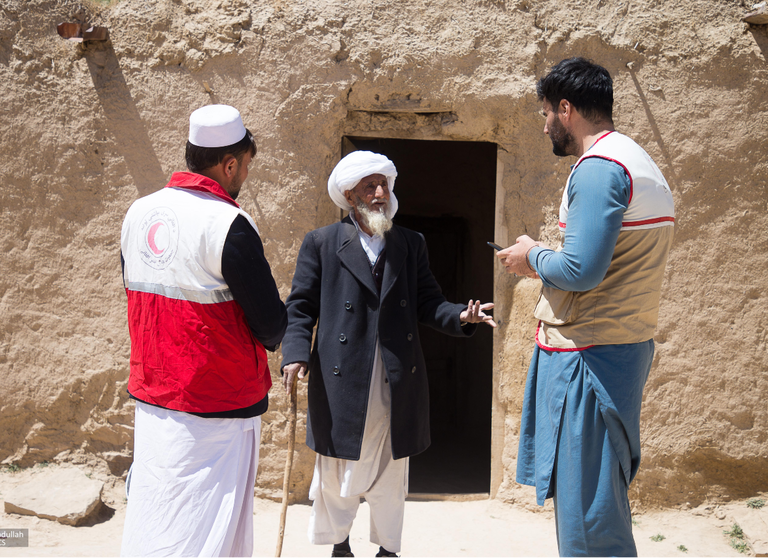Kuala Lumpur / Geneva, 26 December 2022 - Every day, the International Federation of Red Cross and Red Crescent Societies (IFRC) supports thousands of people in Afghanistan to cope with disasters, hunger, and access to health care. At the heart of these services are women and girls: as recipients, designers, and deliverers. They are the centre of our work.
Women are the main clients of the primary health services supported through the Afghanistan Red Crescent Society. Female medical staff make these services possible as doctors, nurses, midwives, and outreach workers. Women lead the vocational training and care and support for destitute women in our Marastoon centres across the country. Women are critical to how we design and monitor services for women and girls. They should not, and cannot, be replaced by male colleagues.
IFRC is extremely concerned by the recent announcements of the Islamic Emirate of Afghanistan (IEA) suspending women’s access to higher education and to work in national and international non-governmental organisations.
It is not clear yet how these announcements will apply to the IFRC. We remain committed to gender diversity, to our female colleagues and to service continuity involving female colleagues. That is how we reach communities and the most vulnerable across the country. We will represent this commitment to the authorities.
However, whatever the direct effect of the announcements on our work, such exclusion is devastating for the country in the short term and long term. Its impact on those in need of humanitarian services will be appalling.
We urge the authorities to consider this impact and to find solutions that enable continuity of life-saving assistance across Afghanistan, in the interests of women and girls, and of all Afghans.
For more information, contact:
Afrhill Rances, +60 19 271 3641
[email protected]
Rachel Punitha, +60 19 791 3830,
[email protected]





